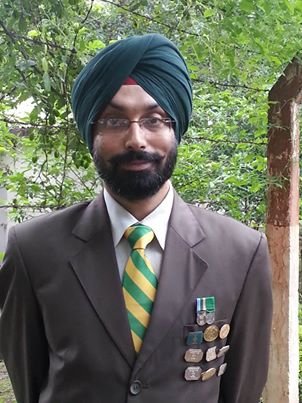EVEN IN THIS CASE SOME LIKELY CULPRITS HAVE BEEN MOVED INTO CONSTITUTIONAL POSITIONS. THE OPPORTUNITY TO BRING TO BOOK EACH AND EVERY PERSON GUILTY OF CORRUPTION SHOULD NOT BE WASTED. THIS IS A GREAT OPPORTUNITY FOR THE COUNTRY TO PUT AN END TO CORRUPTION, WHICH IS EATING INTO THE VITALS OF THE NATION
Not that corruption exists only in defence deals, it runs acrossthe-board, in India. Only in defence deals is it made sensational. It gets all the more pronounced when some very obvious malfeasance is at play. In the case of Bofors, the army was made to redraw the order of preference and place Bofors instead of the French gun at number one position. When the story of money changing hands surfaced, much effort at cover-up was at play in the case of this gun. Both in the case of Bofors and now Agusta Westland, play of bribery in the purchase surfaced in foreign lands and not in India.
In India, the movement of VVIPs by helicopters is handled by the Indian Air Force. This service is responsible for laying down the qualitative and technical requirements in the selection of a suitable machine and its subsequent operations and maintenance. Further user trials of equipment under consideration are carried out within the country, in differing terrain and climate conditions as obtaining in India. Indian Air Force is equally in the know of locations, within the country, where VVIPs need go by helicopter. Therefore, no other agency is qualified and need float any additional requirements: technical or otherwise, for VVIP helicopters.
As a rule, single-vendor situation is invariably avoided for obvious reasons. In the case of Agusta Westland and Bofors we engineered our way to a position of a single vendor. Since, the original requirement of a ceiling of 6,000 metres for the helicopter was not being met by Agusta Westland, this figure was reduced to 4,500 metres, to be in line with this helicopter’s performance parameters. This was done by the PMO and NSA, though these two had no play in this field. Thus Agusta was brought into reckoning. Even this was not enough, so yet another and completely absurd requirement related to the cabin height of 1.8 metres as against the figure of 1.5 metres worked out by the IAF was brought in. This height was based on the plea that the NSG personnel are above 6 feet in height. It implied that these men have to stand around the VVIP during the flight. This cabin height requirement of 1.8 metres ensured that the field was cleared, leaving Agusta Westland as the sole contender.
TRIALS ABROAD
The trials instead of being conducted in the country, were carried out in another country, where terrain and climate was not even remotely similar to that obtaining in India. Because of diverse terrain and climate conditions obtaining in India, trials of equipment normally take one to two years. In this case trials were completed and report finalised in four months (Jan to April). Further it is alleged that trials were carried out on ‘representative’ equipment and not on the actual equipment. The actual equipment, (AW 101) at that point of time was still under development.
Later, some additional features in the helicopter were asked for. IAF required Traffic Collision Avoidance System (TCAS) and Enhanced Ground Proximity Warning System (EGPWS) installed in all helicopters. Of all the people, SPG recommended inclusion of Medical Evacuation System (Medevac) for eight helicopters. These additional last-minute inclusions were a godsend for Westland to jack up the price. While IAF, based on past experience, wanted only eight helicopters, NSG insisted on 12. How NSG arrived at this figure is anybody’s guess. In the past IAF had been meeting the requirement of VVIPs with eight helicopters with utilisation level being only 29%.
In single-vendor cases, Contract Negotiation Committee (CNC) is required to establish a benchmark of reasonableness of price prior to the opening of the commercial offer. Now, if the price indicated by the supplier is within the estimated cost by the buyer, price negotiations are generally dispensed with. In this case, the estimated cost was assessed to be 973 crore and this was approved by the MoD in January 2006. However, by September 2008 the estimated cost was jacked up to 4,878 crore, more than six times the earlier estimate. Though finally Agusta Westland quoted a price of 3,966 crore, which being well within the estimated cost worked out by us, the proposal was acceptable. Though later, this figure was brought down to 3,726.96 crore. Though the question remained as to who jacked up the estimated cost six times. MURKY SIDE COMES TO LIGHT
Once the murky side of this deal came into public knowledge, the Government of India cancelled the contract. In the meantime, three helicopters had been delivered and certain amount paid to the company. It is only when criminal proceedings were initiated against the Finmechanica (Agusta Westland is a division of Finmechanica) CEO Gieseppe Orsi and others that the case of bribery and involvement of Indian officials and politicians came into focus and Indian government was prodded by the Italian investigation agencies that in 2013 the government handed over the case to the Central Bureau of Investigation and further payments stopped. Now the Italian Appelllate court has laid bare the details of the bribe money paid to various people in India to clinch the deal.
We should not repeat the Bofors episode where all the guilty got away, including defence secretary Bhatnagar, whom the CBI had chargesheeted. He was sent as lieutenant governor, placing him outside the reach of palsied arm of law. Even in the case of Agusta Westland some likely culprits have been moved into constitutional positions. Be that it may, this one opportunity to bring to book each and every person guilty of corruption should not be wasted. This is a great opportunity for the country to take firm step on the road to putting an end to corruption, which is eating into the vitals of the nation. Every one, without exception, involved in this murky deal should be hauled up and let this be the first firm step in the direction of rooting out all consuming malaise of corruption in the country.
LT GEN HARWANT SINGH (RETD) ■gen_harwant@hotmail.com The writer is a former deputy chief of the army staff and an expert on defence matters. The views expressed are personal


































































































































